The race to replace British Prime Minister Boris Johnson is ramping up, with 11 candidates declaring their intention to run, many on platforms of lowering taxes and promises to clean up government following Johnson’s crisis-plagued leadership.
Sir Graham Brady, chairman of the 1922 Committee of Conservative party backbenchers announced on Monday that a new leader would be announced on September 5, the same day that the British parliament returns from its summer recess. He also said that the candidate list would close on Monday, before a first round of voting on Wednesday. The list will then be whittled down to two, and the party’s grassroot members will be given the final say.
Johnson announced on Thursday he would step down, after nearly 60 lawmakers and government officials resigned over his handling of a series of scandals, including illegal gatherings held at his Downing Street office in defiance of coronavirus lockdown rules and his failure to act on sexual misconduct allegations against his deputy chief whip.
Now, with the government in tatters, bookmakers and much of Britain are speculating about his likely successor. A slew of contenders have thrown their hat into the ring – from household names to lesser-known Conservative members of parliament.
Among those to announce their candidacy are an Iraqi Kurdish refugee, the children of Indian and Pakistani immigrants and several women – reflecting efforts by the Conservative Party to field more ethnically diverse candidates for Parliament in recent years.
Any candidates who run for the leadership will go through rounds of voting by Conservative lawmakers until only two remain – at which point Conservative Party members nationwide will vote. The winner will be the new party leader – and prime minister.
Here’s a look at the possible contenders.
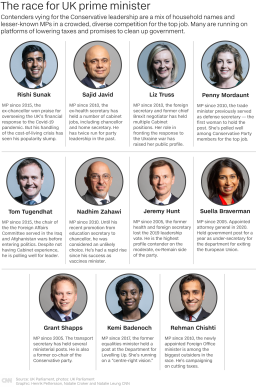
Rishi Sunak
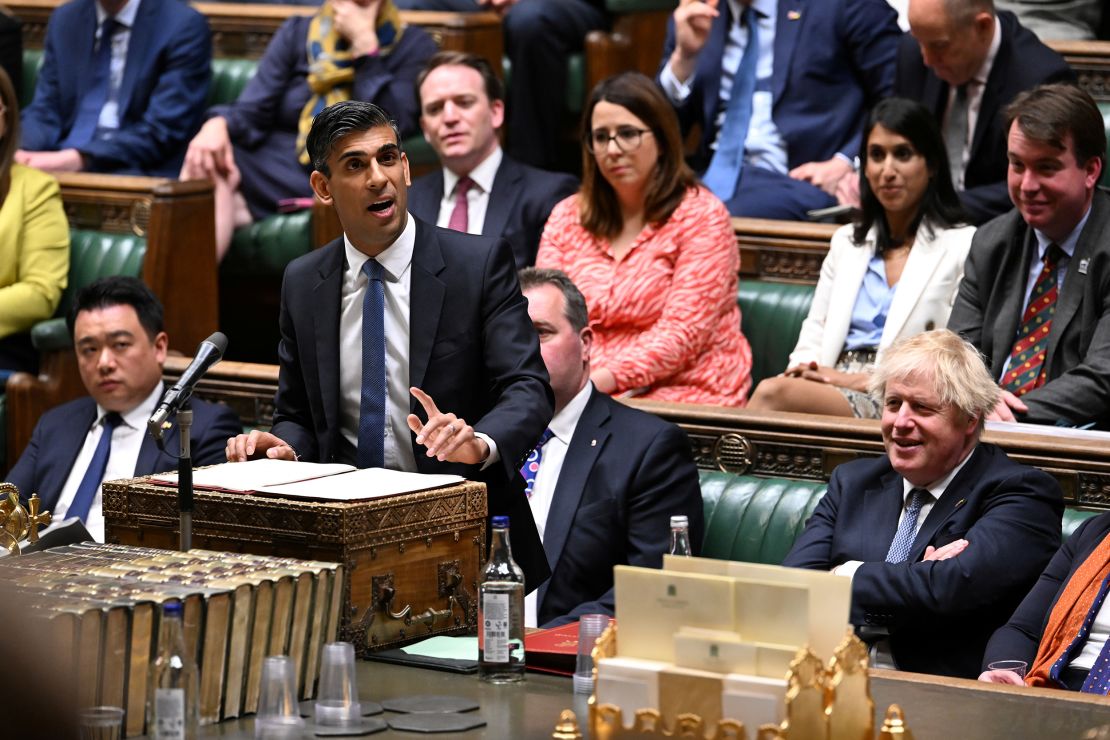
The former chancellor formally announced he was standing to succeed Johnson in a campaign video on Friday, which began with the story of his Indian parents, who both emigrated to the UK from East Africa. “It was Britain, our country, that gave them and millions like them the chance of a better future,” he said. “I want to lead this country in the right direction.”
Sunak was Johnson’s presumed successor for several months after he won praise for overseeing Britain’s initial financial response to the Covid-19 pandemic. But he has suffered several of his own scandals while in government.
His stock sank earlier this year after revelations that he broke Covid regulations to attend the prime minister’s birthday party on June 19, 2020, for which he later apologized “unreservedly.”
His financial and legal affairs came under scrutiny this spring following reports his wife had non-domicile status in the UK – meaning she was not liable to pay tax on overseas income – and that he held a US green card while serving as minister.
His popularity has also taken a beating in recent weeks as Britain has sufferedthe worst cost-of-living crisis in decades. Sunak has struggled to keep down spiraling inflation and has been criticized by opposition parties for what they call a slow and inadequate series of financial measures. Among the economic woes facing Britons after Sunak’s time as the UK’s chief financial minister: real wages dropping to their lowest levels in more than 21 years and inflation hitting a 40-year high of 9.1% in May.
But he is still among the bookmakers’ odds-on favorites to take Johnson’s job.
Sajid Javid
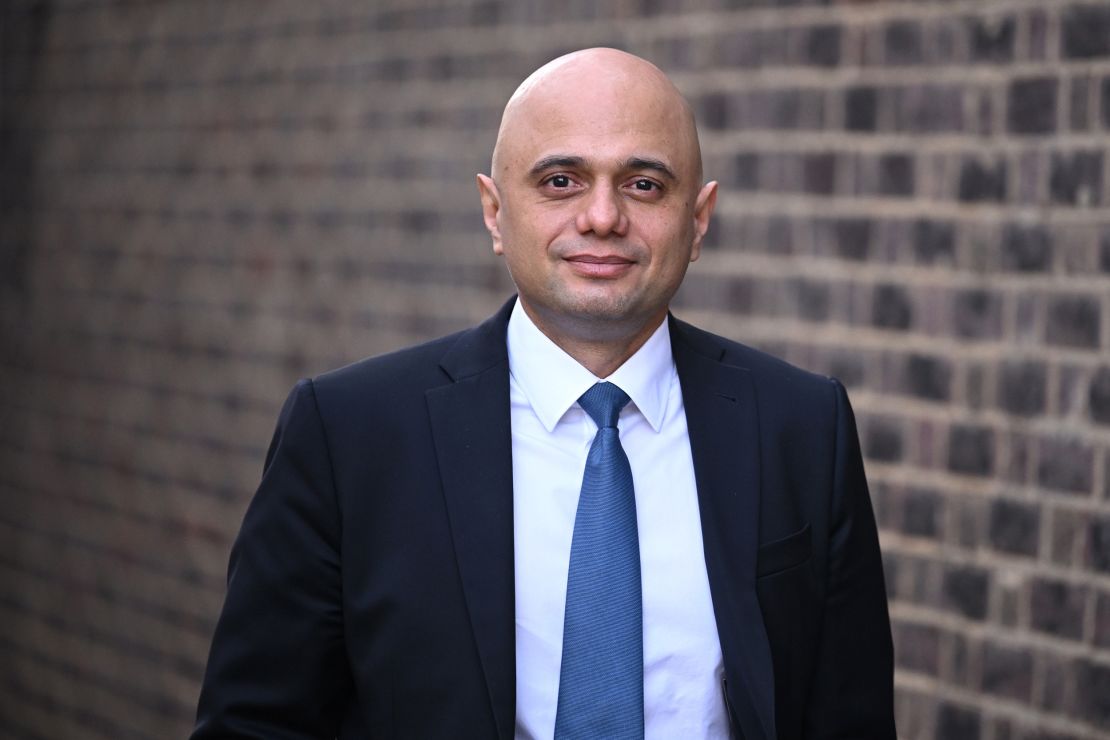
The former health secretary, whose resignation set off a wave of departures from Johnson’s government, officially announced his candidacy on Sunday.
“Whether it’s the cost of living or it’s low levels of growth, for me, that’s our most immediate challenge… You need someone with an economic plan from day one,” he said, adding that his economic plan would have two prongs: short-term measures to help people meet cost-of-living challenges and a longer-term plan for tax reform.
Posting on Twitter on Sunday, Javid said: “The next Prime Minister needs integrity, experience, and a tax-cutting plan for economic growth. That’s why I’m standing.”
The statement echoed Javid’s resignation speech in the House of Commons in which he said that something was “fundamentally wrong” with government.
Those who support Javid’s candidacy hope that he will be credited for triggering Johnson’s ultimate ouster, having been the first cabinet minister to resign – though Sunak followed him minutes later.
The MP has twice run for party leadership in the past – in 2016, after the Brexit referendum, and in 2019, when Johnson was ultimately elected. He served as chancellor from 2019 to 2020.
His family immigrated from Pakistan to the UK in the 1960s, and his father worked as a bus driver.
Liz Truss
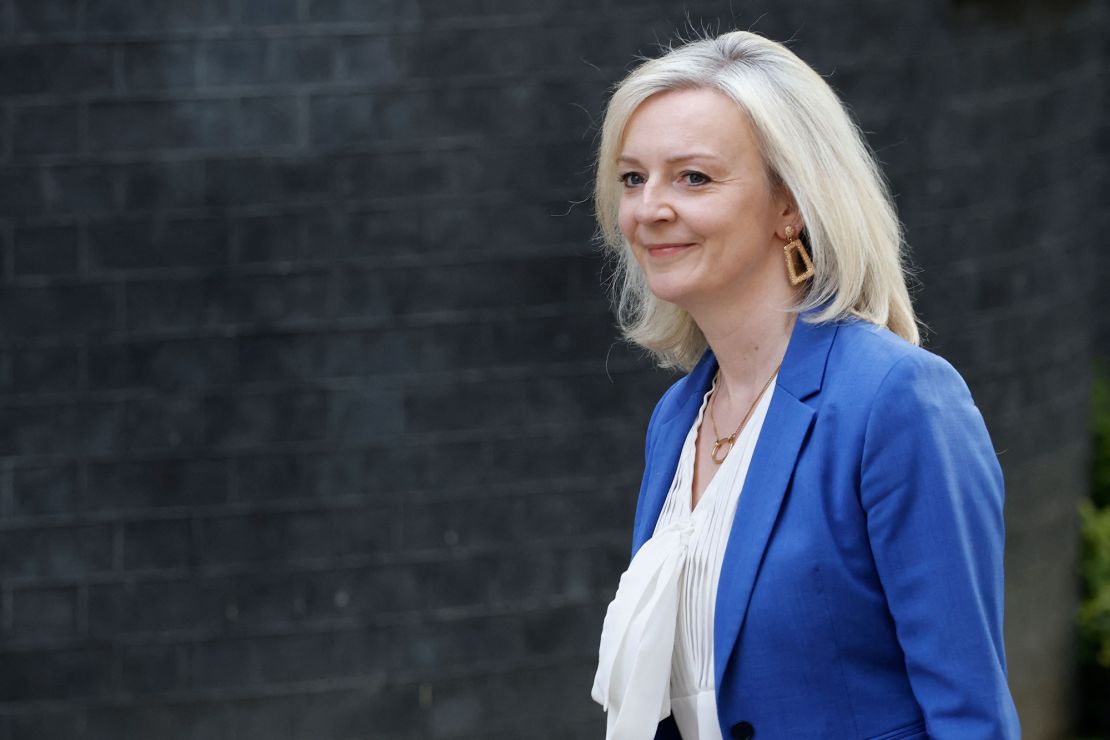
The foreign secretary made her leadership ambitions known in The Telegraph on Sunday. At the heart of her leadership bid is a pledge to cut taxes “from day one,” to tackle the cost-of-living crisis.
Liz Truss became the chief negotiator with the European Union on the UK’s Brexit deal in December 2021 and has held multiple cabinet positions. Since voting Remain in 2016, she has since become one of the loudest Euroskeptic voices in the government, which many have chalked up to her desire for the top job.
She has a formidable and dedicated team around her – some of whom previously worked in Number 10 – which has been producing slick videos and photos of her looking thoroughly statesmanlike. She has apparently attempted to channel former Prime Minister Margaret Thatcher, wearing a headscarf while driving a tank, and her role in fronting the response to Russia’s invasion of Ukraine has also heightened her public profile.
In her comment piece in The Telegraph, she highlighted her foreign policy expertise, writing: “As Foreign Secretary, I have helped to lead the international response to Putin’s war in Ukraine and delivered a tough sanctions package that has led the world, by imposing real pain on Putin and the Kremlin.”
Truss is popular among Conservative members, who would pick the eventual winner of a contest. But Johnson’s downfall could simultaneously tarnish anyone in his cabinet, meaning Conservative voters could turn to a backbencher to take the mantle.
Penny Mordaunt
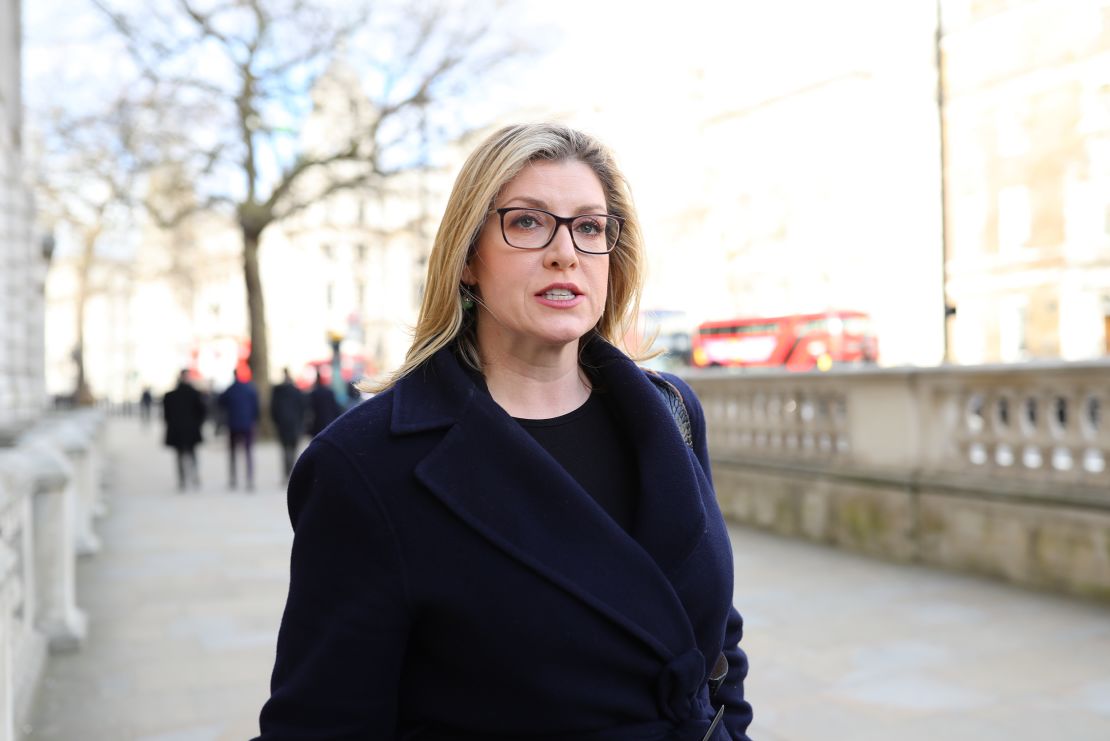
The trade minister, one of the bookmakers’ favorites to replace Johnson, announced her bid for the leadership on Sunday. A poll of party members published July 4 by website Conservative Home put her as the second favorite choice, behind the current defense secretary Ben Wallace, who has ruled himself out of the race.
Penny Mordaunt first entered parliament in 2010 and later joined the cabinet under Theresa May, serving as international development and defense secretary.
After last month’s confidence vote, Mordaunt declined to comment on whether she backed Johnson, raising eyebrows among Westminster observers when she said: “I didn’t choose this prime minister.”
Announcing her interest in the top job, she said the party “leadership needs to become a little less about the leader and a lot more about the ship.”
Mordaunt, who in 2019 became the first woman to serve as defense minister, invoked Thatcher in her statement, saying the former Conservative leader “was remarkable for not just what she did but the speed she did it.”
“She had a vision and a plan. So do I,” she added.
Tom Tugendhat
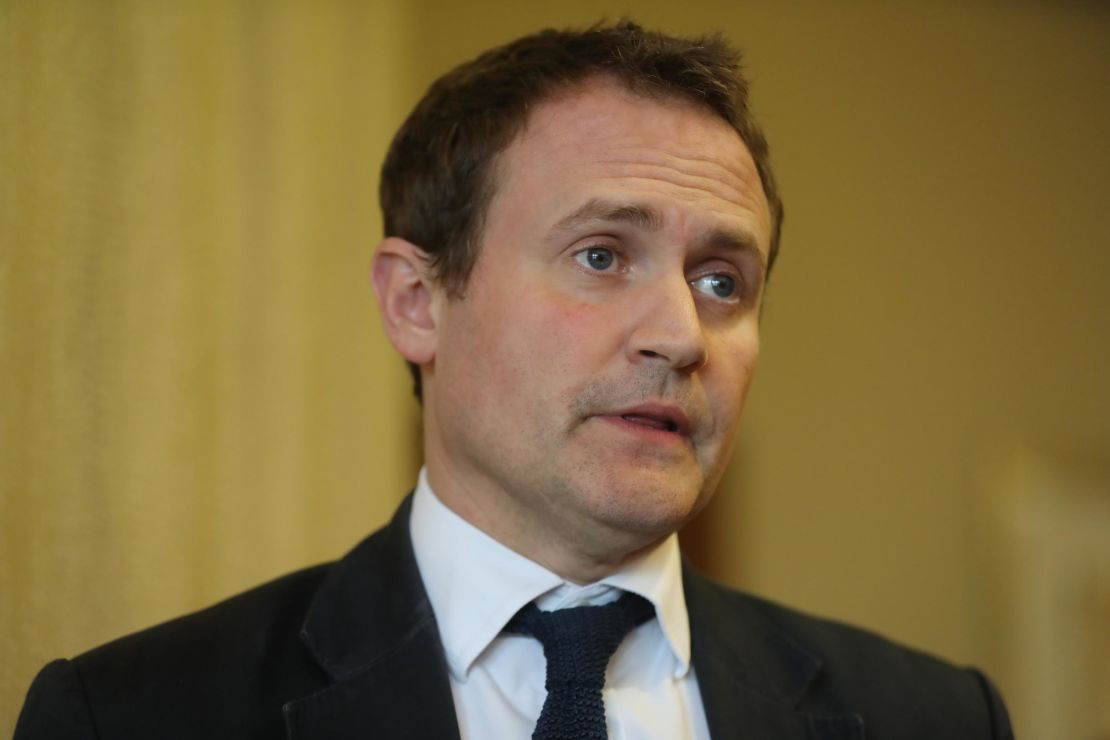
A former British military officer who chairs the Foreign Affairs Committee, Tom Tugendhat has been one of Johnson’s most robust critics and has called for the Conservative Party to drop its focus on “divisive politics.”
Launching his leadership bid on Thursday in The Telegraph newspaper, Tugendhat wrote: “I have served before – in the military, and now in Parliament. Now I hope to answer the call once again as prime minister. It’s time for a clean start. It’s time for renewal.”
He outlined his vision for tackling the cost of living crisis, reducing taxes and investing in neglected regions of the UK.
Despite not having any cabinet or shadow cabinet experience, Tugendhat has impressed colleagues with his oratory skills and seriousness, most notably when he spoke about the fall of Afghanistan. He entered parliament in 2015 after serving in the Iraq and Afghanistan wars.
Some key centrist Conservatives have already been throwing their support behind the relative wildcard, but some worry that his experience is too focused on foreign affairs.
Nadhim Zahawi
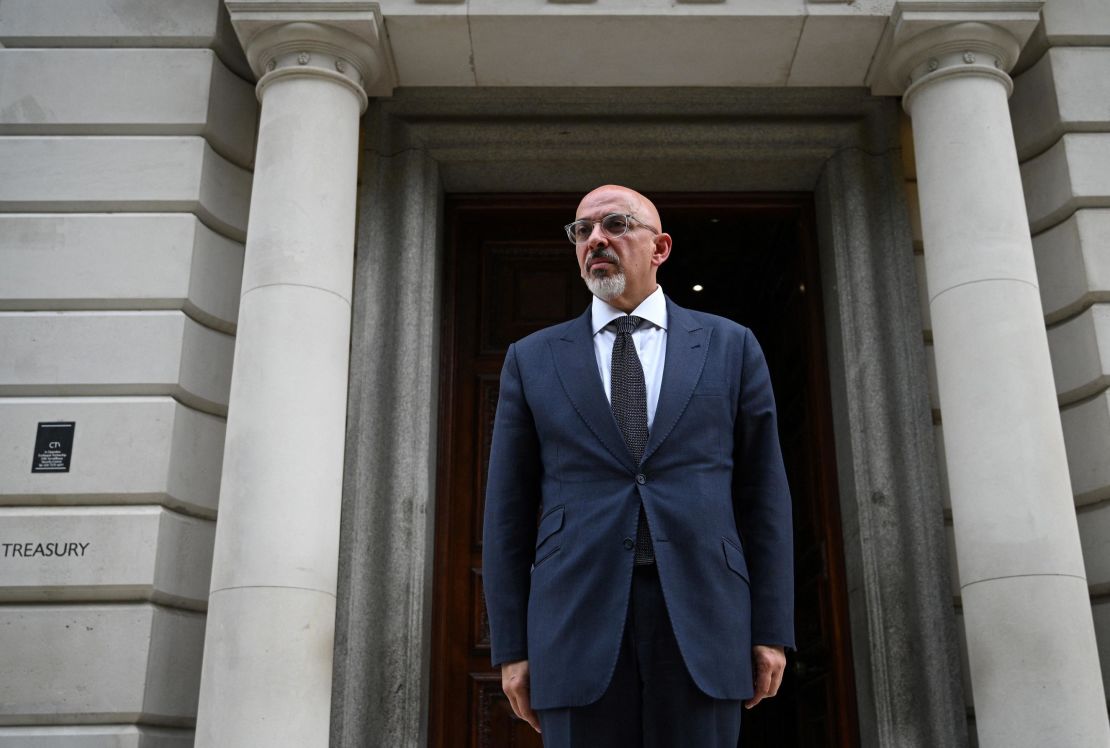
Less than two days after he was appointed by Johnson to the role of chancellor, replacing Sunak, Nadhim Zahawi publicly called on the prime minister to resign and later launched his bid to replace him.
Until his promotion, Zahawi, who joined the cabinet less than a year ago, was considered an unlikely choice as the next leader of the Conservative Party. But his rise under Johnson has been rapid, making his mark with early success as vaccines minister amid the coronavirus pandemic and then as education secretary.
In his pitch for leadership, previewed in The Spectator magazine, he promised to lower taxes for individuals, families and business, boost defense spending, and continue with education reforms he started in his previous role.
Despite voting to leave the European Union in 2016, Zahawi is widely admired among the moderates in the party. Crucially, as one Conservative source put it, “he’s not been in government long enough to have any obvious defects and, despite supporting Boris even after the confidence vote, is not too tainted by association.”
Zahawi was born in Iraq to Kurdish parents and came to the UK as a child, when his family fled Saddam Hussein’s regime. He is believed to be one of the richest politicians in the House of Commons, and helped found the polling company YouGov.
“If a young boy who came here aged 11 without a word of English, can serve at the highest levels of Her Majesty’s Government and run to be the next Prime Minister, anything is possible,” Zahawi is set to say in a speech Monday, an excerpt of which was published by The Spectator.
Jeremy Hunt
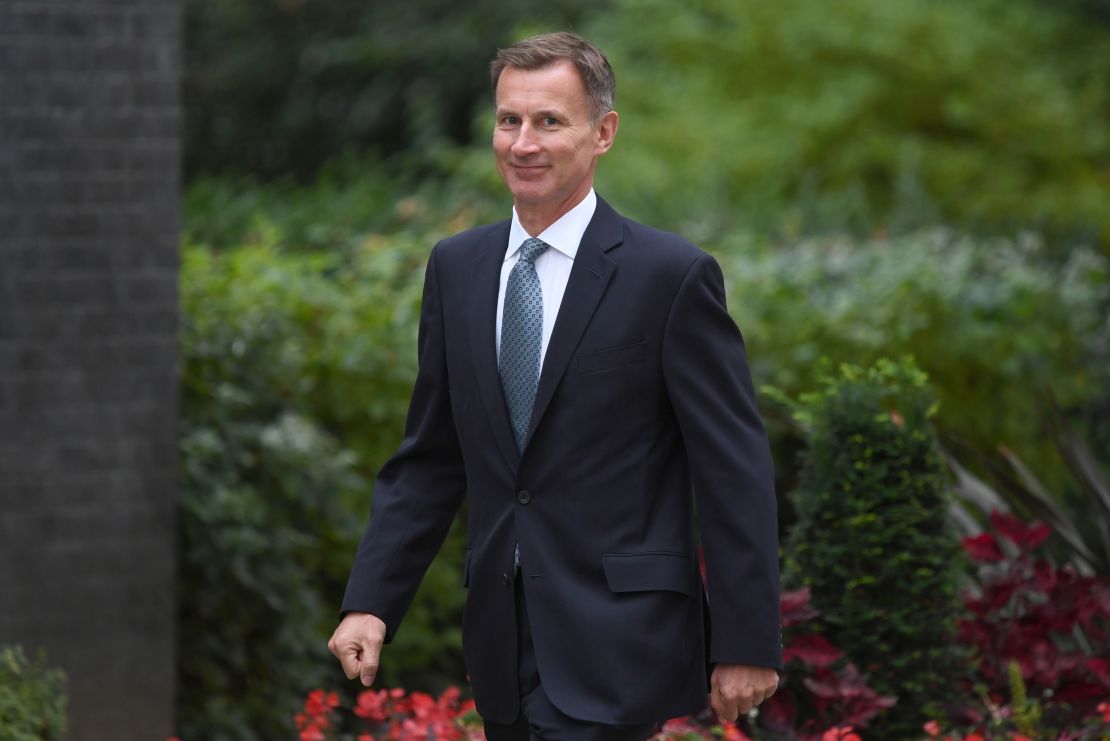
A former health and foreign secretary, Jeremy Hunt lost the 2019 leadership vote to Johnson. He has since styled himself as an antidote to Johnson and is without question the highest profile contender on the moderate, ex-Remain side of the party.
Hunt announced his bid to become the next Conservative leader in an interview with British newspaper The Sunday Telegraph, pitching himself as “the only major candidate who has not served in Boris Johnson’s government.”
In a statement on Twitter ahead of the confidence vote in June, Hunt said: “Anyone who believes our country is stronger, fairer & more prosperous when led by Conservatives should reflect that the consequence of not changing will be to hand the country to others who do not share those values. Today’s decision is change or lose. I will be voting for change.”
Tellingly, Hunt’s statement focused mainly on the Conservatives’ chances of electoral success under Johnson, rather than his policies or the partygate scandal – a decision that could be read as a pitch to the Conservative MPs and members who would decide a leadership election. However, he comes with baggage, and sources from the opposition Labour Party have told CNN they are already writing attack lines.
“It can’t be Jeremy. Labour can say he was running healthcare for six years and failed to prepare for a pandemic. They can say when he was culture secretary he chummed up to the Murdochs during the phone hacking scandal. He will get crushed,” a senior Conservative source told CNN.
Grant Shapps
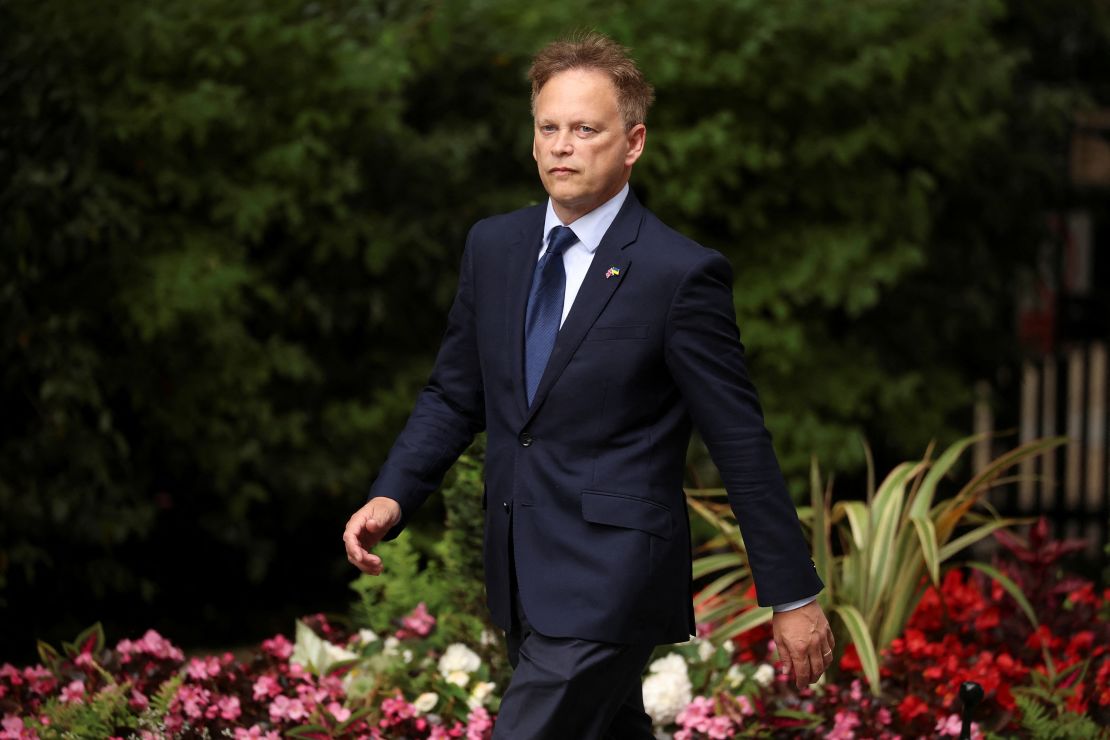
The transport secretary launched his bid for prime minister this weekend, describing himself as a “problem solver, with a proven record of delivery” in a post on Twitter.
Outlining his vision for the UK in an interview with The Sunday Times newspaper, Grant Shapps said that within his first 100 days in office he would produce an emergency budget to lower tax for “the most vulnerable” and give state support to firms with high levels of energy consumption.
“We have had two-and-a-half years of tactical government by an often distracted centre. This must end. We must be a strategic government, sober in its analysis, and not chasing the next headline,” the paper quoted Shapps as saying.
The MP for Welwyn Hatfield was elected in 2005 and has held several ministerial posts. He is also a former co-chair of the Conservative party.
Kemi Badenoch
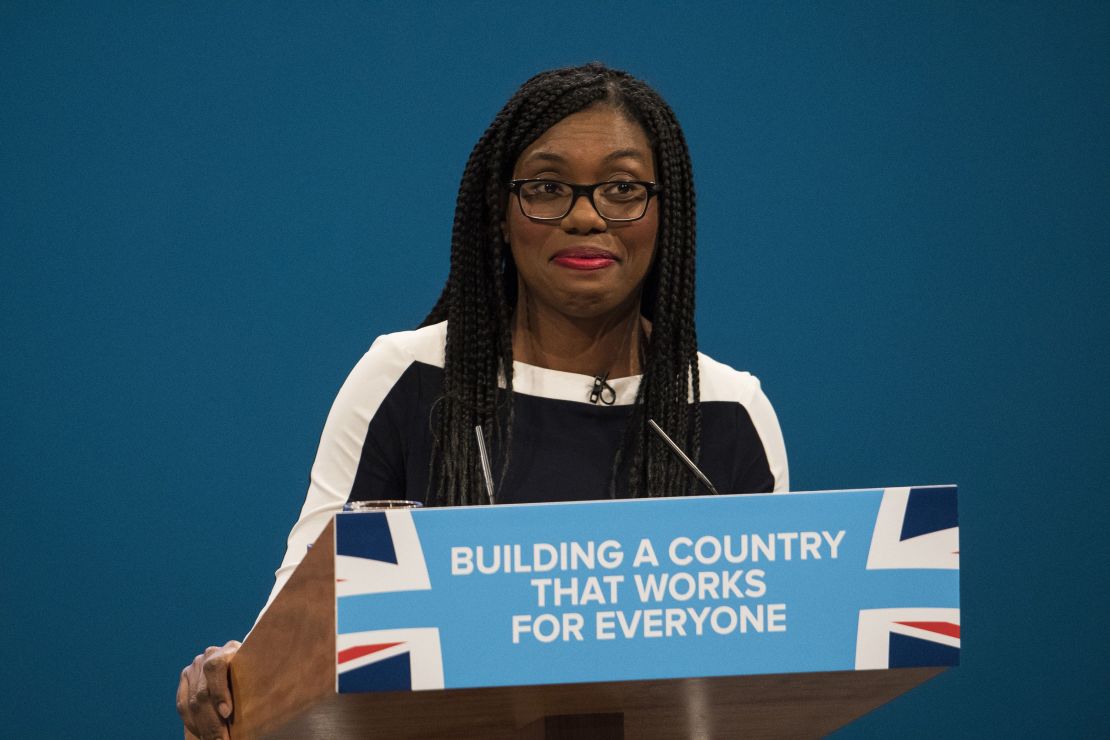
The former equalities minister launched her leadership bid in an op-ed published by the Times of London newspaper, saying she wants a “strong but limited government focused on the essentials.”
Kemi Badenoch resigned from the government on Wednesday citing “issues” that had “come to light” and the way they had been handled.
“I’m putting myself forward in this leadership election because I want to tell the truth. It’s the truth that will set us free,” she wrote Saturday. Badenoch, who voted in favor of Brexit in 2016, added she would run on a “smart and nimble centre-right vision.”
Suella Braverman
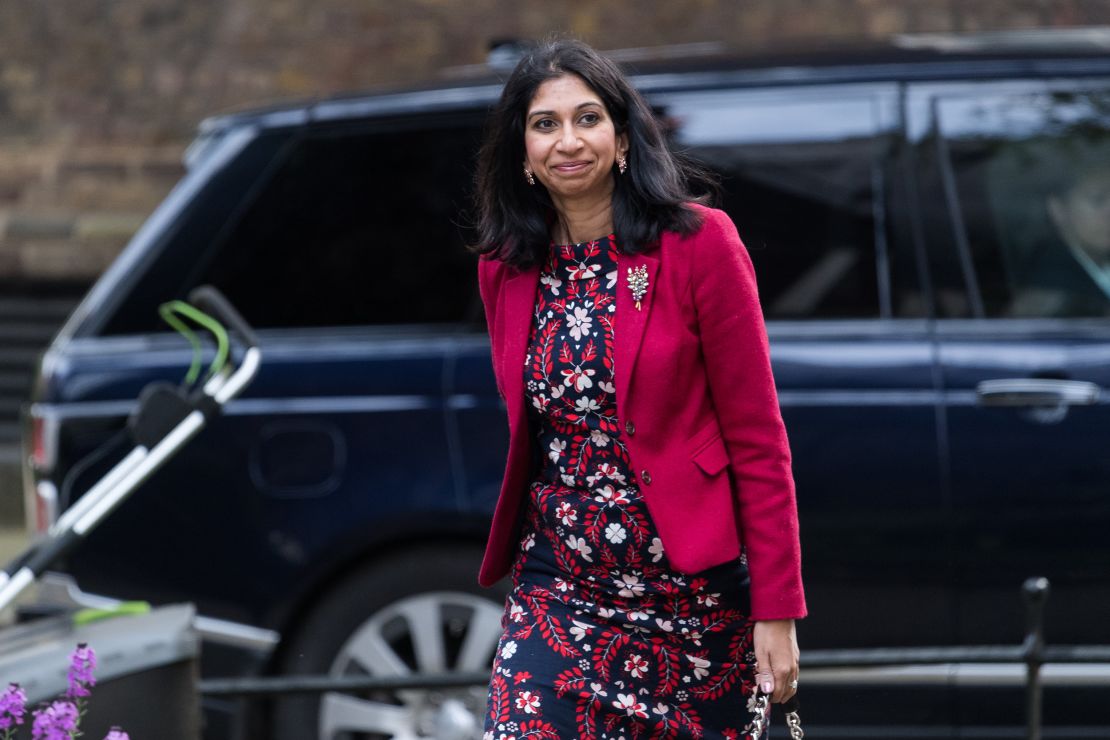
Last week, the attorney general called for Johnson to quit and said that she would join a leadership race to replace him, telling ITV “it would be the greatest honor.”
Launching her bid a few days later, Suella Braverman wrote in The Daily Telegraph: “I saw Brexit as the most important political decision of my life. My views are not triangulated or calibrated. They are as much a part of me as my DNA. I now realise that I cannot rely on others to take Conservatism forward.”
Braverman was elected as MP for Fareham in 2015.
Rehman Chishti
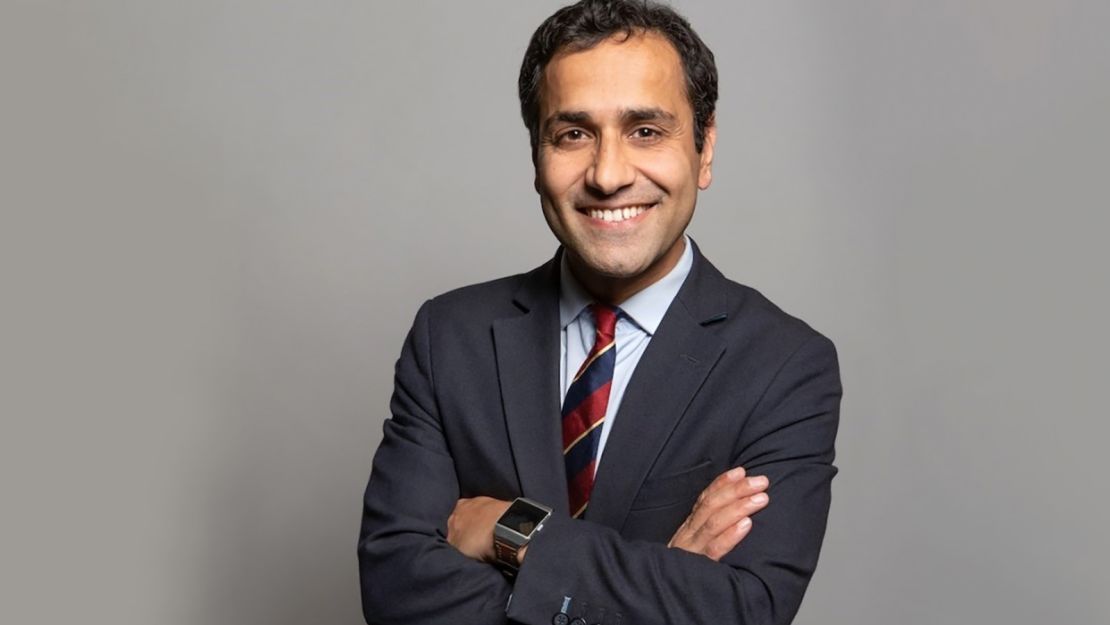
Among the biggest outsiders in the race, the newly appointed Foreign Office minister threw his hat into the ring on Sunday.
Born in Pakistan, Rehman Chishti moved to the UK at the age of six, learning English at school in Gillingham, Kent, the area of southeastern England that he has represented as an MP since 2010. He went on to become the first in his family to go to university and received his law degree.
“It’s important to ensure that everyone who works hard, who’s determined, who perseveres, that they have a government that is on their side,” he said in a Facebook video announcing his candidacy, adding that he would ensure lower taxes and fresh ideas to improve people’s lives.
CNN’s Jorge Engels, Amy Cassidy, Cecelia Armstrong, Ivana Kottasová and Sugam Pokharel in London contributed to this report.






